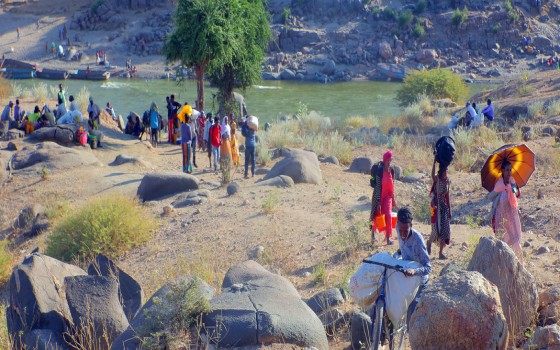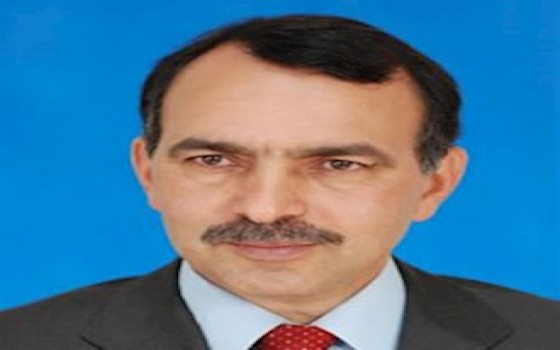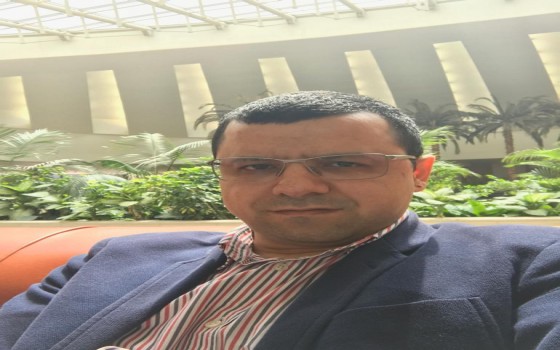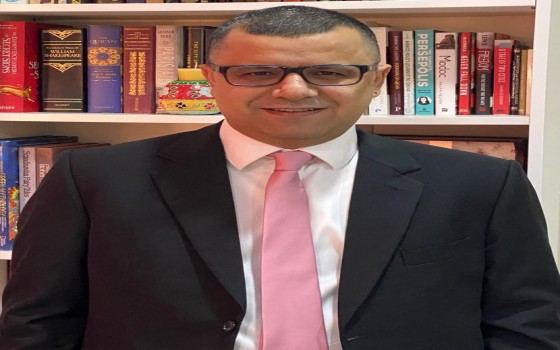
Who loves and who hates President Sisi? By Mustafa Kamal Al-Amir

- Europe and Arabs
- Wednesday , 22 October 2025 16:36 PM GMT
First, not every supporter of President Abdel Fattah el-Sisi is necessarily a patriot,
nor is every opponent of his inside Egypt a traitor,
except for those who have fled abroad and have used Turkey, Qatar, and Britain as poisonous mouthpieces to attack their homeland.
Therefore, without exaggeration or false claims of patriotism, it can be said that the passage of fourteen years of President Sisi's rule has proven that he was a divine messenger sent to save Egypt from a dark fate, after it was on the brink of the abyss following the January 25, 2011 revolution.
While several Arab countries fell into the trap of chaos and civil wars (Libya, Syria, Yemen, and Sudan).
National Positions and National Constants
President Sisi set red lines for Turkey in Libya
and also to the south with the Ethiopian dam
and to the east with Israel in Gaza, Palestine.
President Sisi stood steadfastly against Zionist attempts to liquidate the Palestinian cause and rejected pressure from the US administration under Donald Trump
regarding the displacement of Palestinians from Gaza to the Egyptian Sinai or beyond.
He opened Egypt's borders to receive aid, the wounded, and prisoners. He remained steadfast in his position until he announced it clearly at the Cairo Peace Conference in 2023, and confirmed it at the Sharm el-Sheikh summit attended by Trump and 31 Arab and international leaders. To the representatives of the United Nations and the Arab League.
This stance prompted many of his opponents to reconsider their positions,
after they saw his steadfastness in a time of political volatility and betrayals.
Some supporters are conscious...and others are self-interested.
Among the president's supporters, there are those who support him consciously and with an awareness of the nature of the current situation and its dangers for Egypt and its volatile borders to the west with Libya, to the south with Sudan, and to the east with occupied Palestine.
But there are also those who ride the wave in search of personal interests, positions, and gains. This is a reality that has been present in our society since the era of the monarchy.
Achievements on the Ground
The Egyptian state has succeeded in eliminating terrorism in Sinai and Egyptian cities, and is currently waging a no less important battle against corruption in all its ugly forms (financial, administrative, and moral).
Egyptian-European relations also witnessed a qualitative shift with the holding of the first Egypt-European Union summit in Brussels, a historic event that reflects Egypt's regional and international influence.
Egyptian communities in Europe and America were not far from the national scene.
Thousands traveled at their own expense from France, Germany, the Netherlands, and England to welcome the president on his official visits and express their support for him,
despite failed sabotage attempts planned by Brotherhood members in Europe.
Anas Barquqa was arrested at the hotel opposite President Sisi's residence.
A Leader in a Time of Storms
President Sisi succeeded in rebuilding and arming the army, modernizing its capabilities and readiness to deter, protect peace, and reform the Egyptian economy despite the COVID-19 crisis and the war in Ukraine.
He organized several youth conferences and national dialogue, and issued presidential pardons that included thousands of political and criminal prisoners.
He also worked to fortify Egypt's borders, draw clear red lines in Libya and the Eastern Mediterranean, and confront attempts to displace Palestinians from their land.
His role did not stop at security and politics; he also directed the establishment of a mechanism to receive donations from Egyptians for the reconstruction of Gaza, prior to holding the international conference in Cairo attended by the US President and donor agencies, at an estimated cost of between $50 and $80 billion.
Great Egypt also achieved its long-standing goal with the election of Dr. Khaled El-Enany as president of the United Nations Educational, Scientific and Cultural Organization (UNESCO). Egypt also qualified for the FIFA World Cup for the fourth time in its history. History Repeats Itself. Those who attack Sisi on the false claim that he "coupled with legitimacy" forget that history witnessed similar situations in Sudan, when Field Marshal Abdel Rahman Swar al-Dahab voluntarily handed over power in 1985 to the "elected" Sadiq al-Mahdi. This was before the Islamists, led by Sheikh Hassan al-Turabi and the military leader Omar al-Bashir, overthrew him in 1989. However, they later drank from the same cup in Egypt. The truth is that what happened in Egypt in 2013 was a response to the call of the Egyptian people in the June 30 Revolution, after the Egyptian army uncovered the Brotherhood's plot to strike a deal with Washington to displace Palestinians from Gaza in exchange for support for their rule. In conclusion, President Abdel Fattah el-Sisi, despite the differing opinions about him, remains an exceptional figure in modern Egyptian history. He combined decisiveness with a humanitarian and national vision, and shouldered a very difficult responsibility during a critical period in the nation's history. We will all pass away, but our beloved homeland will endure. We will sacrifice our blood and souls for it. Long live Egypt.












No Comments Found